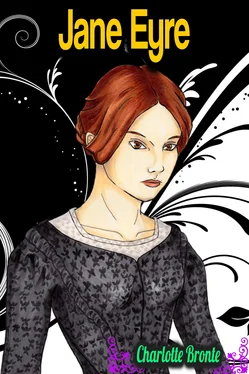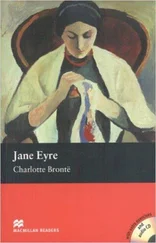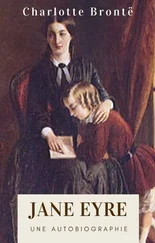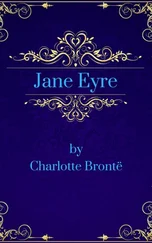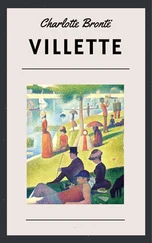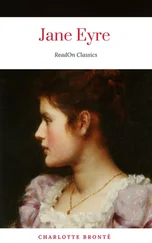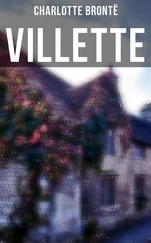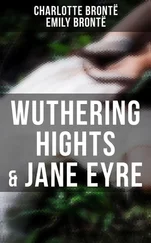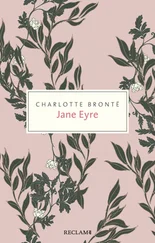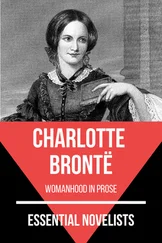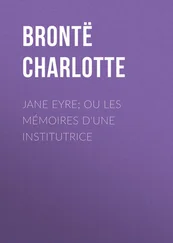Charlotte Bronte
Jane Eyre
Quality of Life, Freedom, More time with the ones you Love.
Visit our website: LYFREEDOM.COM
A preface to the first edition of “Jane Eyre” being unnecessary, I gave none: this second edition demands a few words both of acknowledgment and miscellaneous remark.
My thanks are due in three quarters.
To the Public, for the indulgent ear it has inclined to a plain tale with few pretensions.
To the Press, for the fair field its honest suffrage has opened to an obscure aspirant.
To my Publishers, for the aid their tact, their energy, their practical sense and frank liberality have afforded an unknown and unrecommended Author.
The Press and the Public are but vague personifications for me, and I must thank them in vague terms; but my Publishers are definite: so are certain generous critics who have encouraged me as only large-hearted and high-minded men know how to encourage a struggling stranger; to them, i.e. , to my Publishers and the select Reviewers, I say cordially, Gentlemen, I thank you from my heart.
Having thus acknowledged what I owe those who have aided and approved me, I turn to another class; a small one, so far as I know, but not, therefore, to be overlooked. I mean the timorous or carping few who doubt the tendency of such books as “Jane Eyre:” in whose eyes whatever is unusual is wrong; whose ears detect in each protest against bigotry—that parent of crime—an insult to piety, that regent of God on earth. I would suggest to such doubters certain obvious distinctions; I would remind them of certain simple truths.
Conventionality is not morality. Self-righteousness is not religion. To attack the first is not to assail the last. To pluck the mask from the face of the Pharisee, is not to lift an impious hand to the Crown of Thorns.
These things and deeds are diametrically opposed: they are as distinct as is vice from virtue. Men too often confound them: they should not be confounded: appearance should not be mistaken for truth; narrow human doctrines, that only tend to elate and magnify a few, should not be substituted for the world-redeeming creed of Christ. There is—I repeat it—a difference; and it is a good, and not a bad action to mark broadly and clearly the line of separation between them.
The world may not like to see these ideas dissevered, for it has been accustomed to blend them; finding it convenient to make external show pass for sterling worth—to let white-washed walls vouch for clean shrines. It may hate him who dares to scrutinise and expose—to rase the gilding, and show base metal under it—to penetrate the sepulchre, and reveal charnel relics: but hate as it will, it is indebted to him.
Ahab did not like Micaiah, because he never prophesied good concerning him, but evil; probably he liked the sycophant son of Chenaannah better; yet might Ahab have escaped a bloody death, had he but stopped his ears to flattery, and opened them to faithful counsel.
There is a man in our own days whose words are not framed to tickle delicate ears: who, to my thinking, comes before the great ones of society, much as the son of Imlah came before the throned Kings of Judah and Israel; and who speaks truth as deep, with a power as prophet-like and as vital—a mien as dauntless and as daring. Is the satirist of “Vanity Fair” admired in high places? I cannot tell; but I think if some of those amongst whom he hurls the Greek fire of his sarcasm, and over whom he flashes the levin-brand of his denunciation, were to take his warnings in time—they or their seed might yet escape a fatal Rimoth-Gilead.
Why have I alluded to this man? I have alluded to him, Reader, because I think I see in him an intellect profounder and more unique than his contemporaries have yet recognised; because I regard him as the first social regenerator of the day—as the very master of that working corps who would restore to rectitude the warped system of things; because I think no commentator on his writings has yet found the comparison that suits him, the terms which rightly characterise his talent. They say he is like Fielding: they talk of his wit, humour, comic powers. He resembles Fielding as an eagle does a vulture: Fielding could stoop on carrion, but Thackeray never does. His wit is bright, his humour attractive, but both bear the same relation to his serious genius that the mere lambent sheet-lightning playing under the edge of the summer-cloud does to the electric death-spark hid in its womb. Finally, I have alluded to Mr. Thackeray, because to him—if he will accept the tribute of a total stranger—I have dedicated this second edition of “Jane Eyre.”
CURRER BELL.
December 21 st , 1847.
NOTE TO THE THIRD EDITION
I avail myself of the opportunity which a third edition of “Jane Eyre” affords me, of again addressing a word to the Public, to explain that my claim to the title of novelist rests on this one work alone. If, therefore, the authorship of other works of fiction has been attributed to me, an honour is awarded where it is not merited; and consequently, denied where it is justly due.
This explanation will serve to rectify mistakes which may already have been made, and to prevent future errors.
CURRER BELL.
April 13 th , 1848.
1
There was no possibility of taking a walk that day. We had been wandering, indeed, in the leafless shrubbery an hour in the morning; but since dinner (Mrs. Reed, when there was no company, dined early) the cold winter wind had brought with it clouds so sombre, and a rain so penetrating, that further out-door exercise was now out of the question.
I was glad of it: I never liked long walks, especially on chilly afternoons: dreadful to me was the coming home in the raw twilight, with nipped fingers and toes, and a heart saddened by the chidings of Bessie, the nurse, and humbled by the consciousness of my physical inferiority to Eliza, John, and Georgiana Reed.
The said Eliza, John, and Georgiana were now clustered round their mama in the drawing-room: she lay reclined on a sofa by the fireside, and with her darlings about her (for the time neither quarrelling nor crying) looked perfectly happy. Me, she had dispensed from joining the group; saying, “She regretted to be under the necessity of keeping me at a distance; but that until she heard from Bessie, and could discover by her own observation, that I was endeavouring in good earnest to acquire a more sociable and childlike disposition, a more attractive and sprightly manner—something lighter, franker, more natural, as it were—she really must exclude me from privileges intended only for contented, happy, little children.”
“What does Bessie say I have done?” I asked.
“Jane, I don’t like cavillers or questioners; besides, there is something truly forbidding in a child taking up her elders in that manner. Be seated somewhere; and until you can speak pleasantly, remain silent.”
A breakfast-room adjoined the drawing-room, I slipped in there. It contained a bookcase: I soon possessed myself of a volume, taking care that it should be one stored with pictures. I mounted into the window-seat: gathering up my feet, I sat cross-legged, like a Turk; and, having drawn the red moreen curtain nearly close, I was shrined in double retirement.
Folds of scarlet drapery shut in my view to the right hand; to the left were the clear panes of glass, protecting, but not separating me from the drear November day. At intervals, while turning over the leaves of my book, I studied the aspect of that winter afternoon. Afar, it offered a pale blank of mist and cloud; near a scene of wet lawn and storm-beat shrub, with ceaseless rain sweeping away wildly before a long and lamentable blast.
Читать дальше
